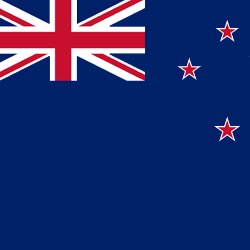New Zealand, ranking second on the Global Peace Index 2022, is undeniably one of the safest and most attractive countries for international students looking to New Zealand Study Abroad. With globally ranked universities and a responsive education system, it has the right mix of opportunities, culture, economy and climate to thrive for an Indian student. Not to miss, its unspoiled scenery will make your experience worth every penny. 19th Amongst World’s Top 10 Cleanest Countries by Forbes. 1/5th International student obtain a permanent residency (PR) in NZ Easier Settlement opportunities. 27th In the world in terms of Per capita income with $48,824.
For those considering New Zealand abroad study opportunities, the country presents a unique combination of safety, quality education, natural beauty, and potential for long-term success.

January and July
8 state-funded universities, 16 ITPs & 550 PTEs
120,000 international students
2,664
20,000 NZ$
3,471 NZ$ PER MONTH






Valid passport
10th and 12th mark sheets
All bachelor’s mark sheets with transcript
All master’s mark sheets with transcript(if have)
Work experience (if any)
Letter of recommendation
English language test result
Financial documents
| Intake | Months | Deadline |
|---|---|---|
| Summer Semester | February | October |
| Winter Semester | July | April |
| ITPs and Private Institutes have multiple intakes for different courses means every month in some or the other institutions. | ||
| Academic Level | English Test | Band / Score |
|---|---|---|
| Under Graduate | IELTS / TOEFL / PTE | 6.0 BAND / 80 SCORE / 55+ SCORE |
| Post Graduate | IELTS / TOEFL / PTE | 6.5 BAND / 85 SCORE / 64+ SCORE |
| Sr. No. | Program | Amount in NZ$ | Amount in INR |
|---|---|---|---|
| 1 | UG | NZ$ 20,000 – NZ$ 25,000 | INR 9,87,390 – INR 12,24,238 |
| 2 | PG | NZ$ 20,000 – NZ$ 30,000 | INR 9,87,390 – INR 14,81,085 |
| 3 | PhD | NZ$ 6500 – NZ$ 9000 | INR 32,901 – INR 4,44,325 |
| 4 | MBBS | NZ$ 30,000 – NZ$ 50,000 | INR 14,81,085 – INR 24,68,476 |
| Sr. No. | Type of expense | Amount in NZ$ |
|---|---|---|
| 1 | Accommodation | INR 800 – INR 1000 |
| 2 | Food | INR 200 |
| 3 | Transportation | INR 100 – INR 120 |
| 4 | Phone | INR 50 |
| 5 | Health Expenses | INR 40 – INR 100 |
| 6 | Daily Necessities | INR 40 – INR 50 |
| 7 | Miscellaneous | INR 100 |
Here is the eligibility criteria for different academic levels:
For Graduation:
• Completion of an equivalent of year 13.
• Minimum requirement of 50-60% or above for admission.
• English Language proficiency test such as IELTS.
For Postgraduation:
• Minimum score of 50-60% in undergraduate studies.
• GMAT or GRE scores are required for management studies.
• Some universities may consider work experience or internships.
• English proficiency must be demonstrated through tests like IELTS.
Here are the examinations necessary for studying in New Zealand:
• Language proficiency exam: IELTS (International English Language Testing System)
• Subject-specific assessments
• GRE (Graduate Records Examinations)
• UCAT ANZ (University Clinical Aptitude Test for Australia and New Zealand)
To be eligible for a student visa in New Zealand, you must achieve a band score of 5.5 in the IELTS test. However, for university admission, a minimum overall band score of 6 is required, with a score of 5.5 in each section.
New Zealand universities offer foundation or pathway programs specifically designed to assist international students in meeting entry requirements, choosing the right program, or bridging the gap between their studies. These programs are beneficial for students who may not meet certain course entry requirements or are uncertain about their program choice.
New Zealand has a total of 8 universities, all of which are public and ranked in the top 3% globally. Choosing a program and an institution solely depends on your interests, academic background, and budget. To decide where to study and what to pursue, start by creating a list of your interests and skills, and spend some time reflecting upon it. Research to understand which skillset or interest has a good scope professionally. Narrow down your choices accordingly and search for relevant courses and institutions. Also consider the upcoming intakes of your preferred courses, because not all universities offer same programs in all three intakes.
As an Indian student with an undergrad degree, you should be ideally looking for an institution that emphasises on practical knowledge, hands-on experience and getting you job-ready. Universities in New Zealand provide a research-driven learning approach wherein you’ll be implementing all the concepts and ideas you gather in the classroom. In fact, it is one of the best places to explore opportunities in research and development.
Begin by taking a look at the subjects you learnt in your undergrad program, list down the ones that interest you. Narrow down to your preferred niche and search for possible programs and universities. Applying to universities in New Zealand would also require you to take language and/or aptitude tests. So, do consider your academic scores while deciding what and where to study. Look for the intake offered for your preferred courses and prepare accordingly.